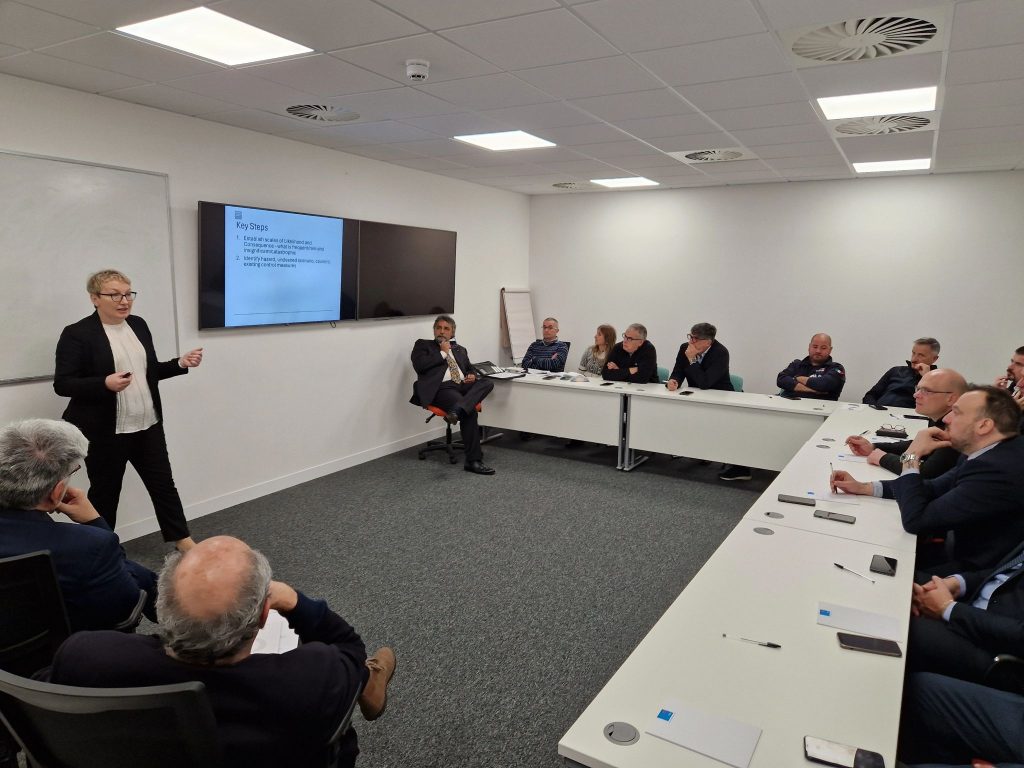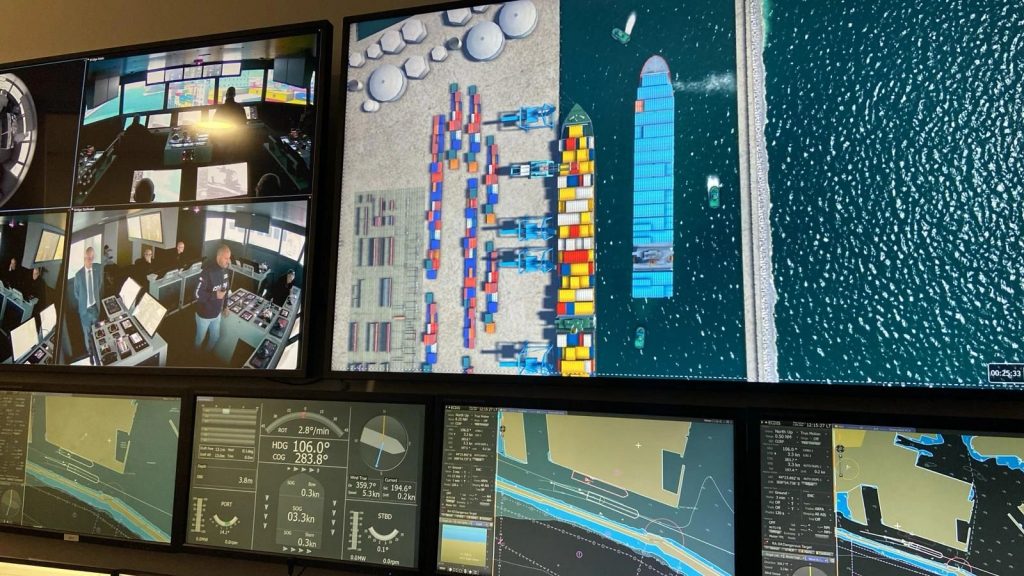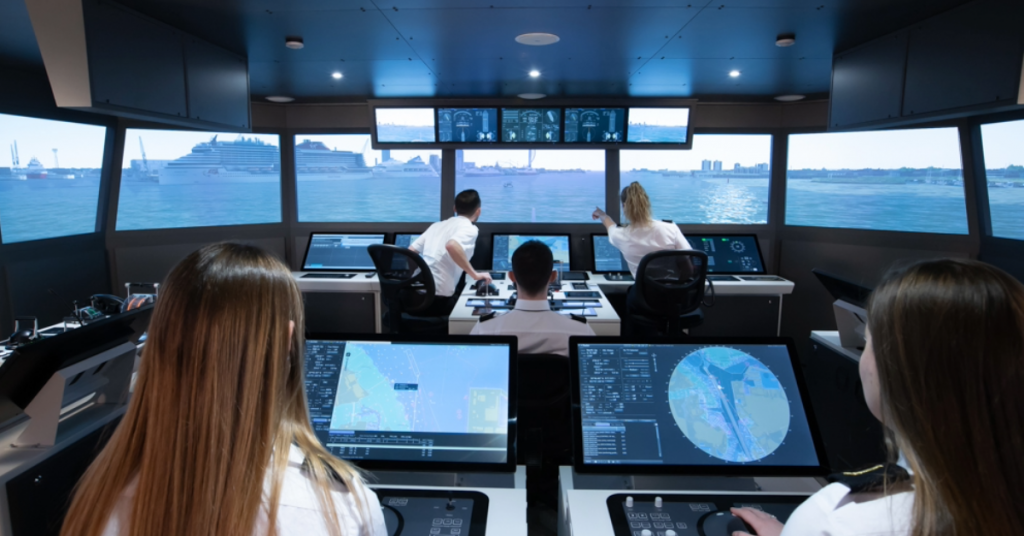Navigating the Future: Maritime Skills Academy’s Bridge Simulators Revolutionise Shipping Port Studies
Among the many advancements in the maritime industry, bridge simulators stand out as a game-changer, offering an immersive learning experience that transcends traditional methods.
With the ability to create simulated scenarios for shipping port studies, this is just one of the ways the cutting-edge technology is revolutionising the industry.
One institution at the forefront of leveraging this technology, is the Maritime Skills Academy (MSA), where bridge simulators aren’t just tools for training future seafarers, but also for conducting in-depth shipping port studies.
The MSA recently hosted delegates from MSC Cruises, assisting them with their Shipping Port Studies Training.
Director of Training at MSA Portsmouth, Plamen Marinov, who oversaw the training said, “The MSA Team had the privilege to collaborate with MSC Cruises’ Containers Division and the Port of Genoa on a port study and mooring arrangement, berthing plan analysis project.”

With the help of the simulators and under the guidance of our instructors, the MSA is able to successfully carry out Shipping Port Studies Training for delegates.
Ports are vital in the global supply chain, paving the way for the movement of goods. Understanding their operations, navigational challenges, and safety protocols is paramount for maritime students, port authorities, and shipping companies alike.
Keep reading to find out how these studies could benefit your crew in their daily operations.
Port Manoeuvring Simulations
Conduct simulations to replicate the process of manoeuvring vessels in and out of the port. This helps assess the feasibility and efficiency of different approaches, considering vessel size, draft, tidal currents, wind conditions, and navigational hazards.
Berth Operations Optimisation
Simulate docking and undocking procedures at different berths within the port. Evaluate the impact of berth layout, availability of tug assistance, mooring arrangements, and other factors on the time and resources required to complete these operations.

Cargo Handling Simulations
Simulate cargo loading and unloading operations to assess the efficiency of terminal facilities and equipment. Analyse the impact of different cargo types, handling techniques, and equipment configurations on turnaround times and operational costs.
Emergency Response Training
Use simulations to train personnel in emergency response procedures, such as collision avoidance, grounding scenarios, fire drills, and pollution control measures. This helps enhance safety awareness and preparedness for handling critical situations in the port environment.
Environmental Impact Assessment
Simulate vessel movements and operations to evaluate their potential environmental impact, such as emissions, noise pollution, and wake effects. This information can be used to identify mitigation measures and optimise operational practices to minimise environmental footprint.
Port Expansion Planning
Use simulations to model the impact of port expansion projects or infrastructure upgrades on vessel operations and port efficiency. Assess the feasibility of proposed changes, identify potential bottlenecks, and optimise layout designs to maximise throughput capacity.

Route Optimisation Studies
Integrate ship simulation with route optimisation algorithms to identify the most efficient routes and scheduling strategies for vessels navigating to and from the port. Consider fuel consumption, voyage duration, weather routing, and port congestion to optimise fleet deployment and voyage planning.
Risk Assessment and Contingency Planning
Simulate various risk scenarios, such as equipment failures, adverse weather conditions, or port congestion, to assess their potential impact on vessel operations and develop contingency plans accordingly. This helps mitigate operational disruptions and minimise financial losses.
How can the Maritime Skills Academy support you?
If you work in the maritime industry and are looking for Shipping Port Studies, get in touch with Director of Training and Simulation, Plamen Marinov, to see how our industry experts can help to support your crew. Or to view our full range of courses, click here.